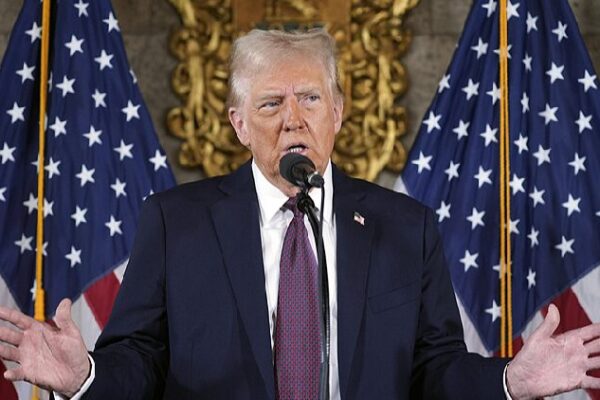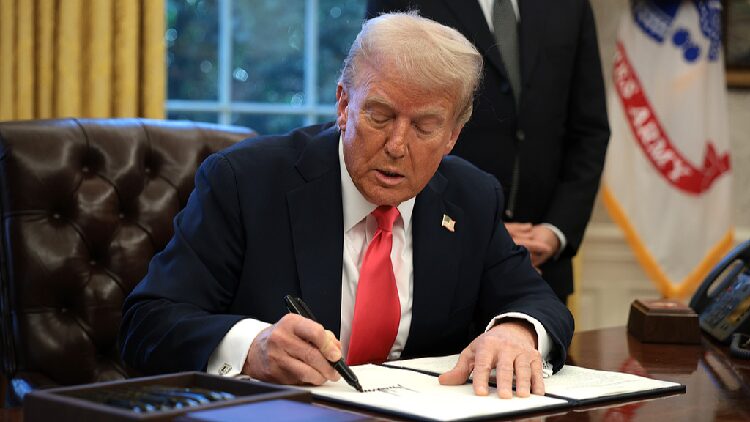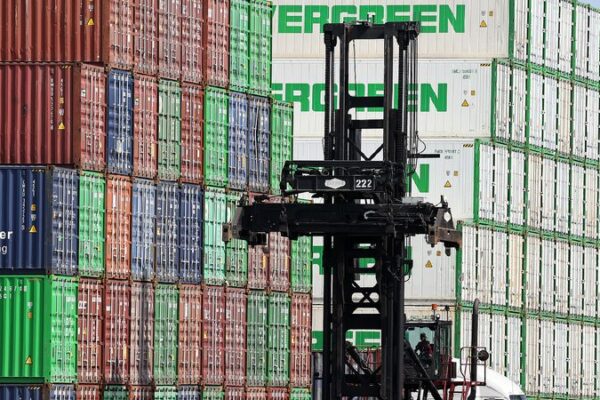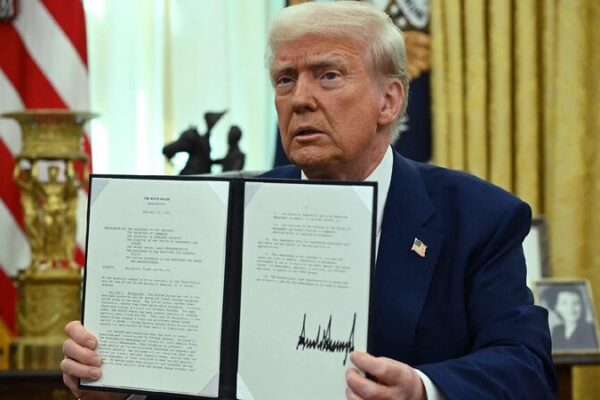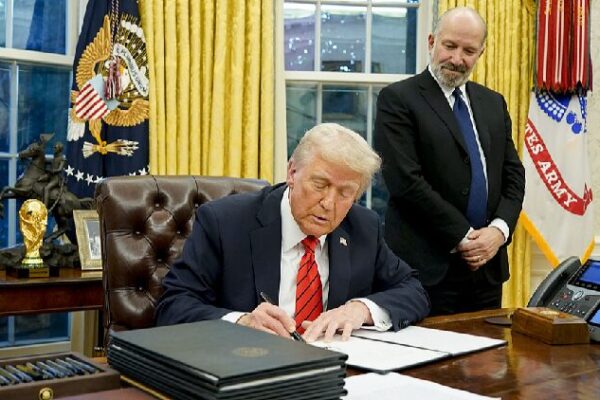The Trump administration’s new 25% tariff on imported cars and trucks took effect on Thursday, escalating trade tensions and sparking immediate concerns about higher consumer prices, production halts, and strained global alliances.
While U.S. President Donald Trump framed the policy as a move to revitalize American auto manufacturing, analysts warn it could backfire by disrupting supply chains, inflating costs for consumers, and alienating key trade partners.
Industry experts estimate that the tariffs could add between $4,000 and $10,000 to the price of vehicles that rely on parts from Mexico and Canada. Cox Automotive predicts a 30% drop in North American car and truck production—about 20,000 fewer vehicles produced daily.
“American consumers are rushing to buy vehicles before the tariffs’ effects kick in. Once pre-tariff inventories shrink, prices will rise sharply, leading to a steep drop in demand,” said Xu Feibiao, director of the Center for the BRICS and G20 Studies at the China Institutes of Contemporary International Relations.
S&P predicts that U.S. light-vehicle sales could drop to between 14.5 million and 15 million per year if the tariffs remain—down from roughly 16 million vehicles sold in 2024.
“In the long run, these tariffs will reshape the automotive landscape. Sustained price hikes and limited availability could dampen consumer enthusiasm, pushing buyers toward used cars, public transit, or delayed purchases,” Xu added. “This slump in demand would compound challenges for automakers already struggling with disrupted supply chains.”
The tariffs have sent automakers and suppliers scrambling to adapt, with the immediate impact falling on those most entrenched in the decades-old North American Free Trade Agreement (NAFTA), rebranded as the United States-Mexico-Canada Agreement (USMCA) in 2020.
Nearly 50% of U.S. auto parts imports come from Mexico and Canada, while Asian manufacturers supply specialized parts under long-standing trade frameworks. A report by Cars.com revealed that nearly a quarter of new vehicles in the U.S. are assembled in Mexico and Canada.
U.S. carmakers like General Motors and Ford, which rely heavily on Mexican parts, may face production delays and cost overruns. European luxury brands could see U.S. sales slump due to higher prices. Nissan announced it would halt new orders from the U.S. for two Mexican-built models, while Stellantis plans to close its assembly plant in Canada’s Windsor.
“Modern vehicle manufacturing is not confined to national borders. Automotive value chains are deeply interwoven,” said Matthias Zink, president of automotive supplier lobby CLEPA. “These protectionist tariffs risk breaking apart a trading partnership built over decades.”
Trump’s new auto tariffs are part of a broader trade policy he has pledged to implement since returning to the White House in January, championing it as central to his “Make America Great Again” agenda. On Wednesday, he also announced a 10% baseline tariff on all imports, along with higher tariffs aimed at specific economies.
The economic ripple effects are already materializing. U.S. manufacturing activity contracted in March for the first time in three months, with input costs soaring to the highest level in nearly three years, according to a survey by the Institute for Supply Management. Goldman Sachs raised the probability of a U.S. recession to 35% over the next 12 months, citing weaker growth expectations tied to tariff-induced inflation and disrupted trade flows.
The tariffs also threaten to deepen rifts with long-standing allies. Mexico, the largest source of U.S. auto imports, alongside South Korea, Japan, and Germany, faces steep new barriers despite existing trade agreements like the USMCA. The European Union, which exported 749,000 vehicles to the U.S. last year, condemned the move and vowed retaliatory measures.
“The only solution for the European Union will be to raise tariffs on American products in response,” said French Finance Minister Eric Lombard in a radio interview.
“This isn’t negotiation; this is a national emergency,” said Peter Navarro, a top trade advisor, underscoring the administration’s hardline stance.
As the tariffs take effect, the world watches for potential retaliation. The EU has drafted targeted countermeasures against U.S. exports, while Canada has vowed retaliatory tariffs. For now, the policy’s ultimate impact hinges on whether it leads to a renegotiation of global trade terms or accelerates a costly new era of economic nationalism.
“There is a growing consensus that the U.S., under this zero-sum approach, is no longer a reliable steward of the global economic order,” Xu said.
Reference(s):
Trump's auto tariffs sow fears of economic fallout and trade wars
cgtn.com



